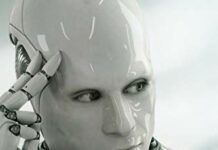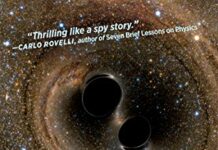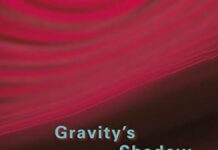
Ebook Info
- Published: 1992
- Number of pages: 207 pages
- Format: PDF
- File Size: 7.95 MB
- Authors: Harry Collins
Description
This fascinating study in the sociology of science explores the way scientists conduct, and draw conclusions from, their experiments. The book is organized around three case studies: replication of the TEA-laser, detecting gravitational rotation, and some experiments in the paranormal. “In his superb book, Collins shows why the quest for certainty is disappointed. He shows that standards of replication are, of course, social, and that there is consequently no outside standard, no Archimedean point beyond society from which we can lever the intellects of our fellows.”—Donald M. McCloskey, Journal of Economic Psychology”Collins is one of the genuine innovators of the sociology of scientific knowledge. . . . Changing Order is a rich and entertaining book.”—Isis”The book gives a vivid sense of the contingent nature of research and is generally a good read.”—Augustine Brannigan, Nature”This provocative book is a review of [Collins’s] work, and an attempt to explain how scientists fit experimental results into pictures of the world. . . . A promising start for new explorations of our image of science, too often presented as infallibly authoritative.”—Jon Turney, New Scientist
User’s Reviews
Editorial Reviews: From the Back Cover This work in the sociology of science explores the way scientists conduct, and draw conclusions from, their experiments. The book is organized around three case studied: replication of the TEA-laser, detecting gravitational radiation, and experiments in the paranormal. Through detailed descriptions of these projects, Collins shows what it is like to try to reproduce results in a laboratory. About the Author Harry Collins is the Distinguished Research Professor of Sociology and director of the Centre for the Study of Knowledge, Expertise, and Science at Cardiff University, and a fellow of the British Academy.
Reviews from Amazon users which were colected at the time this book was published on the website:
⭐The book doesn’t live up to all of its promises, but overall it was an interesting read, without much jargon.Collins is right to point out that there is no generic algorithm to replicate experiments, and he does a good job showing that when there is controversy, non-scientific prejudices and opinions can sometimes drive research, e.g. the case of gravitational wave detection. But it’s merely a matter of time allocation and says little about how debates are settled after carrying out all the necessary experiments.Collins thinks otherwise. Page 127, “Chapters Four and Five show why and how the test of replication fails to work efficiently in disputed areas.”I don’t think it failed for the examples given in chapters 4 and 5. Outcomes of Weber’s experiment could not be replicated by anyone else. Thus gravitational waves haven’t been detected with enough certainty. End of story.I would be interested to see how debates are settled when experiments can be replicated by more experimenters. Would scientists come to a conclusion via a complex social process, despite the controversy? This is not addressed by the book. Actually, I expect the debates to not be settled until the overwhelming majority of scientists agree. I believe it qualifies as “efficient test.” and can be run by an algorithm, granted it is given access to some “social” data such as h-indices. A well-defined algorithm nonetheless.Another faux-pas is the claim that tacit knowledge is all over the place in the replication process. Collin’s examples fall into three categories:- the experiment purposely withheld important information. Not tacit knowledge.- the experimenter didn’t explain some details of his/her experiment but ends up providing them when being requested to. It can be explained in plain English, so it is not tacit knowledge.- the experimenter doesn’t know what parts of the procedure make the apparatus work. Knowing how to ride a bicycle is tacit knowledge all right, but *not* knowing that the bicycle is moving thanks to its user is arguably not knowledge, be it explicit or tacit.
⭐profund insight, very helpful for my research work.
⭐本書『秩序を変える:科学的実践における再現可能性と帰納的推論』は、クーンの『科学革命の構造』以降、科学論の動向に最も大きな影響を与えた歴史的名著です。本書再録の論文が提起した概念「実験者の悪循環」(Experimenter’s regress)が切り開いた視野の新鮮さと説得力は圧倒的。今日の科学技術社会論(STS)の入門テキストにおいてこの概念に触れないものはひとつとしてないほど。その意味で本書は現代科学論の基礎を敷いた古典中の古典と呼ぶに値します。世界についての知識の産出と安定をそれ自体社会現象と見なし、社会的・文化的秩序の安定と変動に関するモデルを提起せんとする野心をもってコリンズは科学知識の産出のプロセスの観察と分析に乗り出しました。実験の正当性を検証する再現実験のそのまた正当性の検証の必要が生まれるという無限後退=悪循環を研究現場の科学者たちはいかにして断ち切るのか?参与観察にもとづくコリンズによる詳細な分析は私たちの思い描く厳密に合理的な科学というイメージが神話にすぎないことを明らかにしました。本書は科学論分野の古典ではありますが、本質的には社会学の書物であり、社会理論的視野から伝統的な科学哲学の問題にダイレクトに解答しようとする問題意識に貫かれている点で、コリンズの企図が真に成功したのかどうかはともかく、社会理論の伝統にとっても特筆すべき内容をもっていると思われます。現代物理学史上のエピソードとしても有名な、ジョセフウェーバーによる重力波検出の「成功」が論争の末に幻と消えていく過程の分析は科学史研究にとっても意義ある傑作だと思うので物理学史に興味ある方にも読んでもらいたい内容です。目次:1)認識と秩序のミステリー 2)再現可能性のアイデア 3)TEAレーザーを再現する:科学知識を不変に保つこと 4)重力波を検出する:実験者の悪循環 5)超常現象の実験:実験者の悪循環を再考する 6)ネットワークの中の科学者:帰納の問題の社会学的解決 後記)専門技能としての科学
⭐
Keywords
Free Download Changing Order: Replication and Induction in Scientific Practice in PDF format
Changing Order: Replication and Induction in Scientific Practice PDF Free Download
Download Changing Order: Replication and Induction in Scientific Practice 1992 PDF Free
Changing Order: Replication and Induction in Scientific Practice 1992 PDF Free Download
Download Changing Order: Replication and Induction in Scientific Practice PDF
Free Download Ebook Changing Order: Replication and Induction in Scientific Practice





